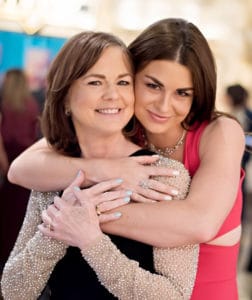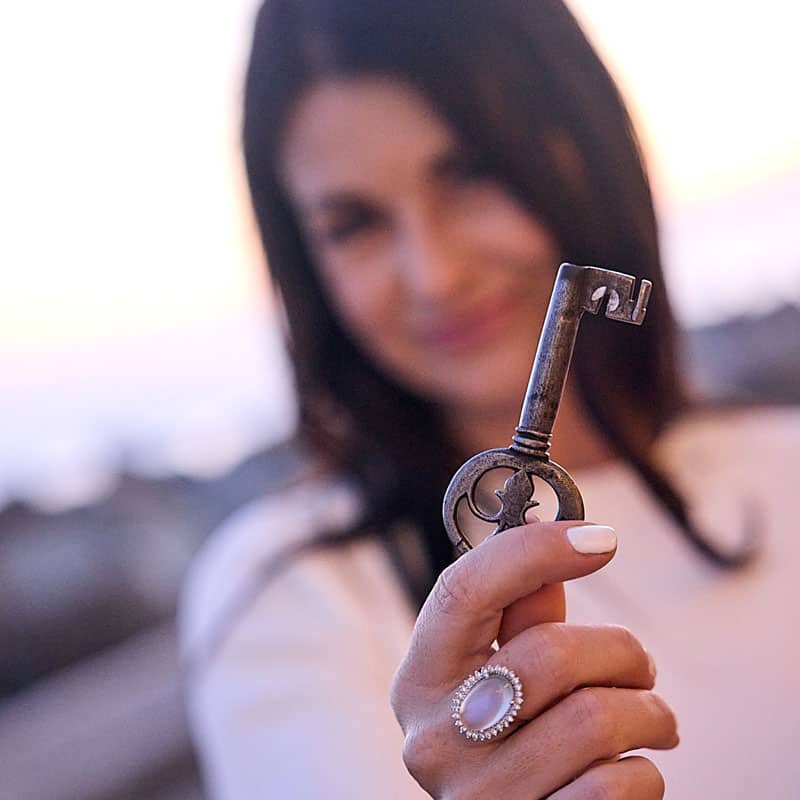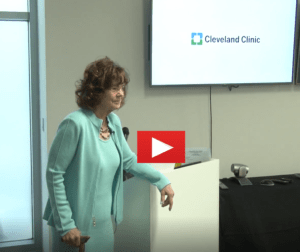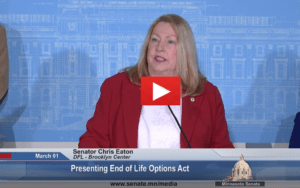I Just Learned that I Have a Terminal Illness: Now What?
Seven questions to answer as you confront death and embrace life.
Some of the biggest lies we tell ourselves center around the subject of death. We may avoid thinking about mortality by refusing to write a will. We may have no idea what end of life options our parents or loved ones want when confronted with death because we don’t want to talk about it. And, most of us think that being diagnosed with a terminal illness is simply something that couldn’t happen to me.
The truth is that all of us will die. Everyone we love will die. And a large number of us will be diagnosed with a terminal illness before our ultimate demise.
This guest blog written by my mother, Dr. Karen J. Warren, describes the questions she had to answer for herself after being diagnosed with a terminal illness. Through the process of self-honesty and evaluation, she hopes that these questions can serve as a practical example of how to use death as a platform to understand yourself and embrace the time that you have left.
– Dr. Cortney S. Warren, Ph.D.

Drs. Karen & Cortney Warren
A guest blog by Karen J. Warren, Ph.D.
A follow-up blog to Watching Myself Die
I am dying. Unless I get hit by a truck, I know how I will probably die. And it won’t be pretty.
On February 22, 2016, I was diagnosed with a terminal illness called Multiple Systems Atrophy (MSA). It is a fatal, progressive brain disorder that affects the neurological body functions such as swallowing, digestion and blood pressure. Learning I had MSA was a blow. I was scared. Angry. Sad. I thought, “Okay, I have this disease. Now what do I do? What do people do when they learn they have a terminal illness? How do I proceed with my life?”
Looking back, I see that my process for dealing with my MSA diagnosis involved answering seven questions. These questions may be helpful to anyone diagnosed with a terminal illness and their loved ones as they move forward from the diagnosis.
1. Whom should I tell about my illness?
When I was first diagnosed, I had to figure out who to tell. And how.
I began by telling those I am emotionally close to—my daughter, my siblings and my dearest friends. Then I told people who needed to know because I would need their assistance to “put my affairs in order”— my lawyer, financial advisor, accountant and various healthcare providers.
When you tell people, they will want more information. Like me, they had never heard of MSA. And, like me, they were full of questions that I could not answer. There may be conflicting emotions. Most importantly, remember that you don’t owe anyone that information. Tell who you want or need to tell, and don’t feel pressured to tell anyone else.
2. What do I need to prepare for life moving forward?
Once I told a few people of my health news, I felt totally overwhelmed. I am a single mother who has lived alone for almost 25 years. I was comfortable with that—until I was diagnosed with MSA. Now the reality of living alone was terrifying, because I now knew I would need help beyond what is provided by physicians and health care practitioners.
Overwhelmed by this question, I turned to my primary care physician for help. I asked her, “Who will take care of me? What do I need to ensure that I am cared for?” Her answer: “You need a case manager.”
My first phone conversation with my case manager was just what I needed. She encouraged me to make choices about what I want to do with the rest of my life and to figure out how to give life meaning as a dying person.
That stumped me. As a retired Philosophy Professor, surely I was capable of knowing what gives my life meaning. But, in fact, I didn’t really know. So, I began by asking myself what I really cared about and wanted to do.
3. What do I want?
Most of my life I have done what I needed to do or what I should do. Now the question was about what I wanted to do.
Listening to others who are dying from a terminal illness, I realized that often what many of us want is just to do ordinary things—wash the dishes, clean the house, go for walks, work in the gardens, go for a swim, use an exercise machine. And, most importantly, be with the people we love.
For me, this meant spending time with loved ones doing what they loved doing. So, during this past year, I have gone to an opera, The Ryder Cup golf tournament, Vikings football games, a glorious day at a spa, Hawaii, and Florence, Italy, all with my treasured family members.
4. What really matters?
After several months of living with my illness, I knew that what gives my life meaning, what really matters to me, are relationships—relationships with myself, with other people, with animals, with the natural world. Creating or nurturing these relationships is what I value most.
How does this translate into how I live my life going forward? It comes down to this: When I am no longer able to communicate or have interactive relationships with others, my life will have lost all meaning to me. When I am nearing the end of life, I want to be permitted to die. I have an Advanced Care Directive that specifically states which medical treatments I do (and do not,)want when I get close to dying. Ultimately and unequivocally, I want end-of-life options that permit me to have medical aid-in-dying.
5. Do I have time for this?
The precious time I have left matters! I found myself asking, “Will doing this or saying that make a positive difference to my health or enhance my well-being?” For example, does it make a difference to me whether I participate in a research program, take an X-ray or have a mammogram? My guiding principle has been this: “If doing something makes a positive difference in my life or enhances my well-being, then do it; if it doesn’t, then don’t do it.”
6. Will this action enhance my quality of life?”
Medical professionals (and others) often suggest to people with a terminal illness that we can and should do things that enhance our quality of life. But what does that mean? I don’t know, exactly. But there are many practical things I can do that enhance my day- to-day living. For example:
- Save the cards, letters, emails, and text messages people send you. They are living eulogies—eulogies before you die—that you can read and enjoy now.
- Post updates about your heath and experiences on a website designed expressly for interaction between you and those who care about you (such as Caring Bridge).
- Find a support group—for you and your caregiver(s). There really is no substitute for being with others with the same challenges. And invariably, they provide helpful information of the “this is something I do” nature.
- Write letters to your family and friends that they will have after you die. I am writing “electronic love letters” to my two grandchildren. Every few months I make a video recording for each one
- Plan to do something fun or pleasing each day.
- Do something new, especially if it nudges you to overcome the “What will people say?” question.
- Schedule activities to look forward to. It really makes a difference to one’s mood and quality of life.
7. What can I do to help others in my position?
Being diagnosed with a terminal illness is tough. In the midst of the emotional process of dealing with the illness, there are a number of legal issues we all encounter as we die. Most importantly, medical aid-in-dying options. For me, this came in the form of supporting legislation to legalize end of life options for the terminally ill. For others, it may be another type of engagement. Staying connected to a social group or cause is helpful on many levels.
Conclusion
Although there are challenges with having a terminal illness, there are also great gifts.
I have time to prepare for dying—for example, by giving away things I don’t need, doing things I love but may have neglected, and renewing relationships with old friends. Healing unresolved conflicts in relationships and ensuring that I am comfortable with my relationships before I die.
Additionally, I now understand that I am dying and I am living. Dying is a part of living and living is a part of dying. Every day I remind myself that knowing I am dying offers me the opportunity to be my best self, to spend the time I have left by living fully in the present.
Finally, the most significant gift was totally unexpected: Sometimes I am happier than I have ever been. Because I have let go of the past and the past has let go of me.
It simply isn’t relevant anymore. I live more centered in the present moment than I ever have. And I am just plain happy to be here. Right now.
Dr. Karen Warren Presenting to the Cleveland Clinic Lou Ruvo Center for Brain Health
TO READ MORE OF DR. CORTNEY'S WORK, SUBSCRIBE TO HER BLOG
Safe subscribe. You will have the opportunity to opt-out with every notice we send.




Dr. Courtney, I just watched your video on lying (again). Along with lying, we delude ourselves. At the end of your presentation you mention that we have only one life. There are those so deluded who believe humans have two. This is the delusion of resurrection and an eternal afterlife spent in heaven with Dad. Seriously, the monotheists have have been scammed into believing they are special with an immortal soul for some 2000 years. This delusion must be educated out of existence. The delusional must be confronted with their belief in resurrection.
Karen was an amazing woman and friend, and will always have a big special place in my heart. I miss her dearly, and miss caring for her cats. She always had the best things to say about her daughter. She was sooo very proud of you, Cortney!!